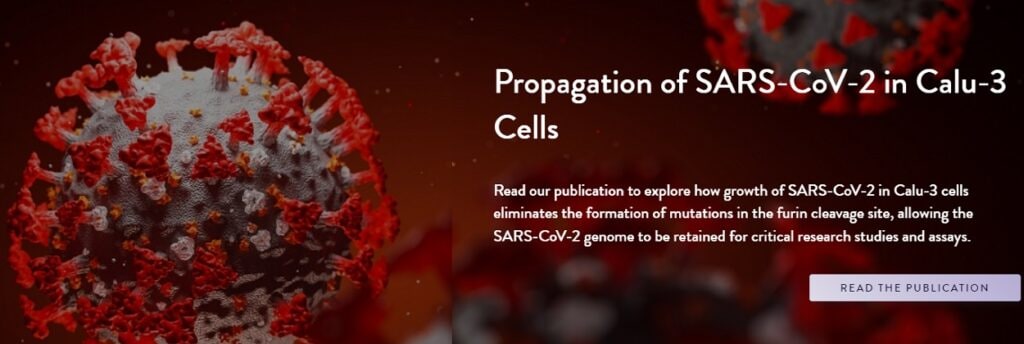
ATCC 연구진들이 참여해 최근 발표된 논문으로 (Viruses 2021, 13(12), 2434; https://doi.org/10.3390/v13122434), 기존에 많이 사용되는 Vero cell 대신 Calu-3 (lung epithelial Cell Line)를 host로 사용했을 경우 SARS-CoV-2 에 발생하는 mutation 에 대한 연구 결과입니다.
Abstract
SARS-CoV-2 pathogenesis, vaccine, and therapeutic studies rely on the use of animals challenged with highly pathogenic virus stocks produced in cell cultures. Ideally, these virus stocks should be genetically and functionally similar to the original clinical isolate, retaining wild-type properties to be reliably used in animal model studies. It is well-established that SARS-CoV-2 isolates serially passaged on Vero cell lines accumulate mutations and deletions in the furin cleavage site; however, these can be eliminated when passaged on Calu-3 lung epithelial cell lines, as presented in this study. As numerous stocks of SARS-CoV-2 variants of concern are being grown in cell cultures with the intent for use in animal models, it is essential that propagation methods generate virus stocks that are pathogenic in vivo. Here, we found that the propagation of a B.1.351 SARS-CoV-2 stock on Calu-3 cells eliminated viruses that previously accumulated mutations in the furin cleavage site. Notably, there were alternative variants that accumulated at the same nucleotide positions in
virus populations grown on Calu-3 cells at multiple independent facilities. When a Calu-3-derived B.1.351 virus stock was used to infect hamsters, the virus remained pathogenic and the Calu-3-specific variants persisted in the population. These results suggest that Calu-3-derived virus stocks are pathogenic but care should still be taken to evaluate virus stocks for newly arising mutations during propagation.
논문 확인을 원하시면 아래 다운로드 상자를 클릭해 주세요.
* 주문 및 견적 문의는 지사/대리점으로 연락 주세요

